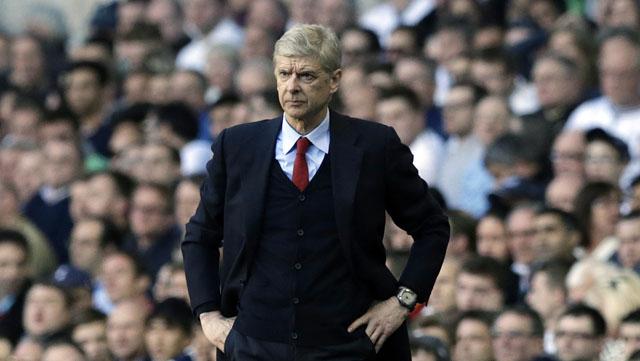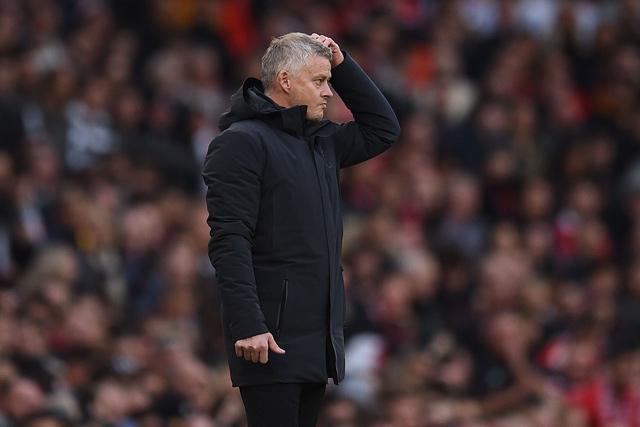You are here
Pioneer Wenger broke down barrier for overseas coaches
By Thomson Reuters Foundation - Apr 21,2018 - Last updated at Apr 21,2018

Arsenal manager Arsene Wenger during training at Arsenal Training Centre, St Albans, Britain, on April 4 (Reuters photo by John Sibley)
LONDON — When Arsene Wenger walked into Arsenal in 1996 he not only unlocked the door to the club’s trophy cabinet he also kicked down a barrier which had made the insular English game out of bounds for foreign coaches.
Every English top-flight title-winning team since 1889 had been put together by a British manager. When Wenger appeared talking of science diets, psychology and arty football, few took much notice.
Alex Ferguson’s all-powerful Manchester United side won the title that season and many doubted whether a sophisticated European coach, let alone a Frenchman with little playing pedigree, could master the hurly-burly of the English game.
In his first full season in charge in 1997/98, however, Wenger guided Arsenal to their second League and FA Cup double, blending the stoic British defence of Tony Adams, Nigel Winterburn, Lee Dixon and Steve Bould with the grace and pace of Dutch duo Dennis Bergkamp and Marc Overmars.
Fellow Frenchman Patrick Vieira, meanwhile, raised the bar for the modern box-to-box midfielder — a player whose silk and steel encapsulated Winger’s best Arsenal teams.
When he took over Arsenal, England’s top flight had 11 English managers, four Scots, one Northern Irishman, one Irishman and one Dutchman in Chelsea’s Ruud Gullit.
As this season draws to a close there are two Germans, three Spaniards, two Italians, two Portuguese, two Frenchmen, one Italian and an Argentine in charge of Premier League sides.
That transformation began in 1997/98 when Winger’s feat convinced clubs to look beyond the North Sea and even the FA decided to make Swede Sven-Goran Eriksson England’s first foreign national coach in 2001.
The landscape has changed so much since the first of Wenger’s three English titles that Ferguson is the only British manager to win the Premier League in the following 20 seasons.
Chelsea, who had hired Gullit before Winger’s arrival and then turned to Italian Gianluca Vialli, appointed Portugal’s Jose Mourinho in 2004 to spend Russian owner Roman Abramovich’s money and land consecutive league crowns.
Italians Carlo Ancelotti and Antonio Conte have won league titles for Chelsea since.
Manchester City’s new-found petrol wealth only bore fruit when Welshman Mark Hughes was fired in 2009 and replaced by Italian Roberto Mancini who memorably won the club’s first league title since 1968 in 2011/12.
Threatening domination
City also triumphed under Chilean Manuel Pellegrini in 2014 and will celebrate the title again under Spaniard Pep Guardiola under whom they are threatening domination.
Even English football’s greatest modern-day fairytale, Leicester City’s 2015/16 Premier League title, was masterminded by Italian Claudio Ranieri.
Manchester United attempted to retain the Ferguson blueprint by appointing Scot David Motes when he retired in 2013, but he lasted less than a season, since when Dutchman Louis van Gaal and now Mourinho have sat in the Old Trafford hot seat.
Liverpool were quick to follow Arsenal’s lead in 1998 when Frenchman Gerard Houllier, initially with Roy Evans, took charge for six years — the club’s first overseas manager.
Spain’s Rafael Benitez followed and won the Champions League in 2004/05 and now Germany’s Juergen Klopp is attempting to do the same having reached the semifinals.
Not every club, however, has found the foreign route so profitable.
While Wenger was trophy-gathering with Arsenal, a few miles away Tottenham Hotspur attempted to keep pace but failed miserably, most notably with Swiss Christian Gross and Frenchman Jacques Santini, neither of whom lasted a season.
Dutchman Martin Jol made a reasonable fist of things at White Hart Lane before being sacked while Juande Ramos won a League Cup in 2008 but did not last long.
Yet, even Tottenham, in the form of Argentine Mauricio Pochettino, are now thriving and their rise coincides with Arsenal’s steady decline under Wenger.
Pochettino is one of 11 non-British Premier League managers, yet there are signs of change and for that Wenger must take some credit as he prepares to depart.
The likes of Bournemouth’s Eddie Howe, Burnley’s Sean Dyche and Brighton and Hove Albino’s former Ireland international Chris Hughton would all no doubt point to Wenger’s influence as they impress among the big boys.
Related Articles
"Arsene Who?" That famous headline in a London newspaper welcomed the relatively unknown Arsene Wenger when he was appointed Arsenal manager in September 1996.
LONDON — Manchester City’s class of 2022/23 have staked their claim to be ranked as English football’s greatest ever team after the treble w
MANCHESTER, United Kingdom — Manchester United’s historic 5-0 thrashing at the hands of fierce rivals Liverpool has left manager Ole Gunnar














